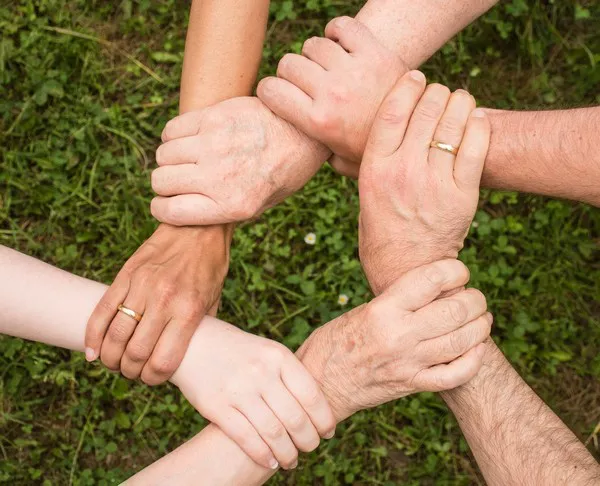In the grand tapestry of existence, time is a constant companion, weaving its way through the fabric of our lives, shaping our experiences and molding our perceptions. Yet amidst the ever-changing landscape of time, there exists a steadfast beacon of constancy: friendship. Philosophically, time is often seen as a transient force, subjecting all things to its relentless march forward. However, the concept of friendship transcends the constraints of time, forming an enduring bond that withstands the test of temporal flux. In examining the interplay between time and friendship, we are compelled to ponder the deeper mysteries of human connection and the profound significance of enduring relationships in our lives.
Nature of Friendship
At the heart of enduring friendship lies a tapestry of qualities that imbue the bond with resilience and strength. Trust, built upon a foundation of shared experiences and mutual respect, forms the bedrock upon which lasting friendships are forged. In times of joy and sorrow, laughter and tears, friends stand by each other’s side, offering unwavering support and unconditional acceptance. It is through the crucible of life’s trials and triumphs that the true essence of friendship is revealed, illuminating the path toward deeper understanding and emotional connection.
Psychological Perspective
From a psychological standpoint, the enduring nature of friendship can be attributed to a myriad of factors, including emotional reciprocity, compatibility, and shared values. Research suggests that friendships characterized by high levels of trust, empathy, and communication are more likely to withstand the test of time. Additionally, the fulfillment of psychological needs, such as belongingness and companionship, plays a crucial role in fostering long-lasting friendships. Moreover, the shared history and memories shared between friends create a sense of continuity and stability that transcends the passage of time.
Cultural Views
Cultural perspectives on friendship vary widely, yet many cultures share a common reverence for the enduring bonds of camaraderie and kinship. In some cultures, friendships are regarded as sacred connections that endure beyond the bounds of time and space, while in others, they are celebrated as essential components of social harmony and cohesion. Regardless of cultural differences, the universality of friendship as a source of solace, companionship, and mutual support remains a timeless truth that transcends cultural boundaries.
Personal Stories
Countless personal anecdotes and quotes bear witness to the enduring power of friendship. From childhood companionships that withstand the test of adulthood to lifelong friendships that weather the storms of life, these stories serve as testaments to the enduring resilience of human connection. As the poet Khalil Gibran once wrote, “Friendship is always a sweet responsibility, never an opportunity.” In the tapestry of human experience, friendship remains a steadfast thread that binds us together, weaving a narrative of shared laughter, tears, and triumphs that transcends the bounds of time.
Challenges and Growth
While friendships may face challenges and obstacles along the journey of life, it is often through adversity that the bonds of friendship are strengthened. As individuals evolve and grow, so too do their friendships, adapting to the changing landscapes of time and circumstance. Through moments of conflict and reconciliation, misunderstanding and forgiveness, friends learn to navigate the complexities of human relationships with grace and resilience. It is in these moments of shared vulnerability and growth that the true depth of friendship is revealed, forging bonds that endure the test of time.
Expert Opinions
Experts and thought leaders in the field of psychology and sociology have long recognized the enduring significance of friendship in human lives. Psychologist Abraham Maslow, in his hierarchy of needs, identified belongingness and love as fundamental human needs essential for emotional well-being and fulfillment. Similarly, sociologist Emile Durkheim emphasized the importance of social bonds and connections in maintaining social order and cohesion within society. From a developmental perspective, psychologist Erik Erikson identified intimacy versus isolation as a key stage of psychosocial development, highlighting the crucial role of friendships in fostering emotional intimacy and connection.
Practical Advice
Nurturing and maintaining long-lasting friendships requires intentionality, effort, and commitment. By prioritizing regular communication, spending quality time together, and actively supporting each other’s goals and aspirations, friends can cultivate a sense of closeness and connection that transcends the passage of time. Additionally, practicing empathy, understanding, and forgiveness can help navigate conflicts and misunderstandings, strengthening the bonds of friendship and fostering a sense of mutual trust and respect.
Conclusion
In conclusion, the enduring nature of friendship serves as a testament to the profound significance of human connection in our lives. While time may change and circumstances may shift, the bond of friendship remains a steadfast anchor that grounds us in the tumultuous seas of life. Through shared experiences, mutual support, and unwavering loyalty, friends weave a tapestry of love and companionship that transcends the confines of time and space. In the timeless embrace of friendship, we find solace, strength, and a sense of belonging that enriches our lives and sustains us through the passage of time.
Related topics:





























